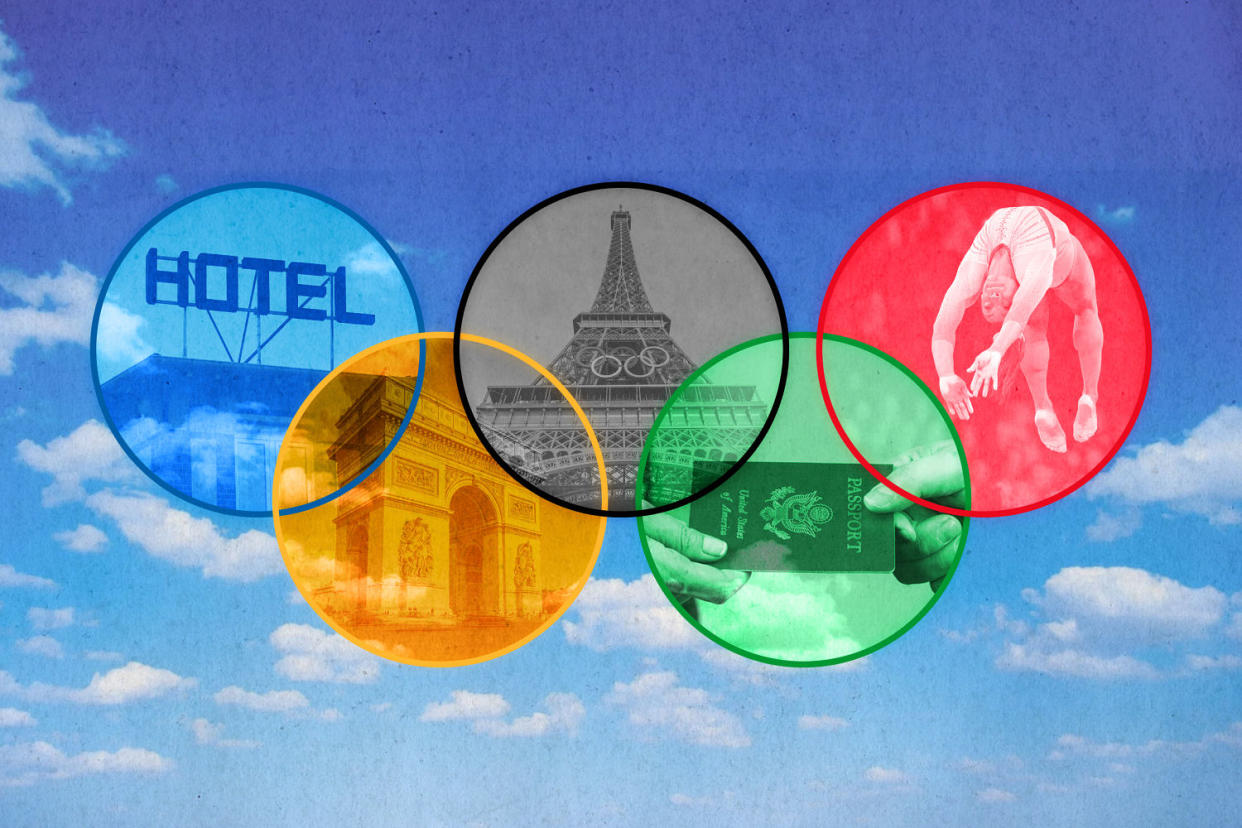Paris seeing signs of 'healthy' travel demand ahead of Summer Olympics — but plenty of deals remain

The 2024 Summer Olympics in Paris are set to see plenty of attendees — but travel data shows there are still opportunities for last-minute deal-hunters to capitalize on current market dynamics.
Roughly a month out from the Friday, July 26, torch-lighting ceremony that will kick off the games, more than 75% of Paris-area rooms tracked by analytics firm CoStar have been booked over the Games’ opening weekend. That compares with approximately 42% occupancy over the same weekend in 2023.
“Three out of four rooms is certainly a healthy performance,” said Jan Freitag, national director for hospitality market analytics at CoStar.
Freitag said occupancy would likely only increase as the Games approach, especially as people — primarily those in Europe who can make the trip by car or train — decide at the last minute that they want to attend. There hasn’t been a Summer Olympics played on the European continent since the Athens Games in 2004.
The government in Paris is spending an estimated $9.7 billion on preparation for the Games, with hopes for 15 million visitors between late July and early September.
Unprecedented security and cleanup efforts have been undertaken, including a plan to prep the Seine river for competition — an effort highlighted by President Emmanuel Macron personally with a promise to take a dip in the water.
But nothing is guaranteed, and some would-be visitors to the City of Lights might be just as inclined to forgo the trip to avoid crowds, Freitag said.
“It’s a very, very special event — but it will be interesting to see how this number pans out compared to other Augusts in prior years,” he said. “There are always people who are staying away from these events too.”
Other travel sites showed a plethora of hotel deals still available — with at least one 3-star hotel in the heart of Paris showing 50% off usual rates for high summer, according to Google.
Airfares tracked by digital booking site Hopper show flights to Paris from the U.S. during the weekend of the opening ceremony averaging about $877 per ticket.
That is down 27% compared with the same period last year — but Hopper economist Hayley Berg said that largely reflects a step-down from the sky-high prices seen during the post-pandemic “revenge travel” surge that continued into 2023, along with greater seating capacity being offered by air carriers.
“This rebalancing of supply and demand, combined with the outliers of 2023 prices, mean that airfare this summer to Paris costs less than last year, even with the Olympics ahead,” Berg wrote in a statement.
“We expect that as Olympic trials complete and the Games grow closer, prices will surge as flights begin to sell out on specific travel dates,” Berg added.
In fact, bookings on the Hopper app for trips to Paris around the Olympic Games dates have doubled compared with last year at this time.
A French tourism minister recently said international flight arrivals to Paris were already up 24% for the period covering the Summer Games.
U.S. airfares in May were down 16% from last year, according to the latest reading from the consumer price index — and overall, fares have returned to prepandemic levels.
But for would-be travelers with middle to lower incomes, Freitag said, a trip to Paris this summer is likely out of the question.
“The headline is bifurcation,” he said. “For the very high and high end, there’s still a lot of interest and money for high-end leisure and staying in upscale accommodations.”
But households making less than $75,000 annually or so “are feeling the pinch of higher inflation rates,” Freitag said. While the inflation rate has come down significantly from its peak in the summer of 2022, it still hovers just above the Federal Reserve’s desired 2% mark.
“In the basket of things that you have to buy versus want to buy, have-to-buy items like car insurance are now so much more expensive versus want-to-buy like weekend trips,” he said. “So we are seeing a deceleration of that demand, especially for midscale-type properties.”
French officials have cautioned that while the boost from tourism should be substantial — more than $1 billion using the most conservative assumptions — it could take a year or longer to tabulate the true impact.
And historically, the ultimate economic effect for Olympic host cities has been mixed. A Council on Foreign Relations report notes that while the 1992 Summer Games in Barcelona are often cited as a tourism success story, there has been roughly an even split between cities that have seen some payoff from hosting the Olympics and those that haven’t.
This article was originally published on NBCNews.com

